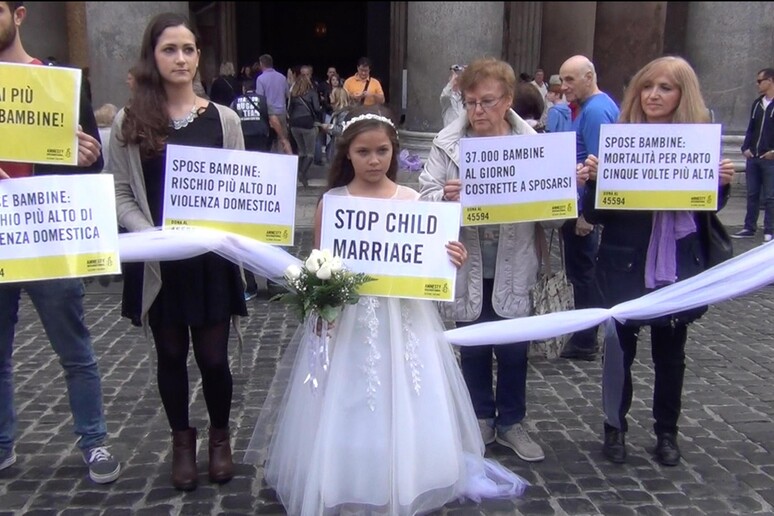Italy's supreme Cassation
Court ruled Thursday that child brides living in Italy cannot be
made to have sex with the adult husbands they were forced to
marry abroad, and fathers who do so are liable for rape.
With this ruling, the court indicted an Indian man living in
the northern city of Padua who subjected his 15-year-old
daughter to an adult man she was forced to marry in Bangladesh
in 2012.
A preliminary hearings judge had allowed the girl's father
to plea bargain a sentence of one year ten months for domestic
violence and not rape, arguing he acted not out of a criminal
nature but because he belongs to "a culture of abuse".
The Cassation Court struck down that sentence and ordered
the father tried for both rape and domestic violence, without
the possibility of a plea bargain.
It also heavily chastised the preliminary hearings judge.
"What surprises us most is the subcultural label ascribed by
the judge to the father to justify the crime of domestic
violence on the one hand, and on the other to exclude his
involvement in the deliberate and conscious tolerance of the
son-in-law's abusive conduct towards his daughter," the supreme
justices wrote.
The teen had testified that she was being subjected to her
husband's every sexual whim and that she lived in a domestic
atmosphere of bullying and coercion, and the judge knew about
her statements.
"Stating as the judge did, that the parent has the right to
coerce his daughter into obeying his son-in-law, due solely to
his cultural background - one which is unacceptable, offends our
conscience and cannot find the least justification - is of a
pettiness that cannot and must not find its way into our
juridical system, and which cannot but surprise us for the ease
and levity with which it was made," the Supreme Court wrote.
The case came to light when the girl told her teachers at
school, and they turned to the justice system.
ALL RIGHTS RESERVED © Copyright ANSA











